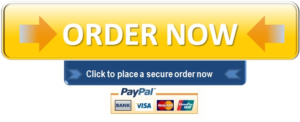Using Emotional Intelligence to Minimize the Impact of My Emotions on Others in the Workplace
1. Emotional Strengths and Weaknesses
Strengths:
– Empathy: I am highly attuned to the emotions of others, which enables me to anticipate needs and react supportively.
– Self-Awareness: I have a strong understanding of my emotional triggers and states, allowing me to monitor and manage my reactions.
– Adaptability: I am flexible and can adjust my approach based on the emotional climate of the workplace.
Weaknesses:
– Impatience: I sometimes struggle with impatience, particularly when results are not immediate or when there is a perceived lack of progress.
– Overcommitting: My inclination to take on too many responsibilities can lead to stress and heightened emotional responses when tasks pile up.
– Difficulty Delegating: I occasionally have trouble delegating tasks, which can cause unnecessary stress and strain.
2. Personal Stressors and Emotional States Related to the Workplace
– High-Pressure Deadlines: Tight deadlines can lead to stress and a sense of urgency, sometimes triggering anxiety.
– Work-life Imbalance: Difficulty in maintaining a balance between work and personal life can result in stress and burnout.
– Team Dynamics: Working with a team that has conflicting personalities or communication styles can lead to frustration and tension.
3. Emotional Triggers in Relation to These Personal Stressors
– Micromanagement: Feeling micromanaged can evoke frustration and a sense of being undervalued, reducing my motivation.
– Lack of Autonomy: Limited control over my work or decision-making can trigger feelings of frustration and helplessness.
– Negative Feedback: Receiving negative feedback, especially when unexpected or delivered poorly, can cause feelings of defensiveness and discouragement.
4. Workplace Behaviors that Demonstrate the Management of My Emotions
– Regular Check-ins: I hold regular one-on-one and team meetings to ensure open lines of communication, which helps in managing stress and addressing concerns proactively.
– Stress Management Techniques: I utilize stress management techniques like time management tools, prioritization, and taking short breaks to stay focused and calm.
– Positive Reinforcement: I make a conscious effort to recognize and celebrate achievements within the team, fostering a positive and motivating environment.
– Constructive Feedback: When providing feedback, I focus on being constructive and supportive, ensuring it is delivered in a way that encourages growth rather than defensiveness.
5. How I Have Developed My Emotional Intelligence
Developing my emotional intelligence has been a continuous journey involving self-reflection and proactive learning:
– Professional Development: I have participated in workshops and training sessions focused on emotional intelligence, which have provided valuable tools and techniques for managing emotions.
– Mindfulness and Meditation: Incorporating mindfulness and meditation into my daily routine has enhanced my self-awareness and ability to stay calm under pressure.
– Feedback and Mentoring: Seeking feedback from colleagues and mentors has been crucial in identifying areas for improvement and understanding how my emotions impact others. This openness to feedback has helped me develop greater emotional resilience.
– Reflective Practices: Keeping a journal to reflect on daily interactions and emotional responses has allowed me to gain insights into my emotional patterns and triggers, leading to more effective management strategies.
By leveraging these strategies and practices, I have been able to enhance my emotional intelligence, ensuring that my emotions positively impact the workplace while minimizing any potential negative effects.
